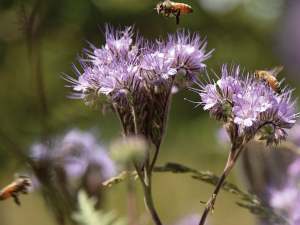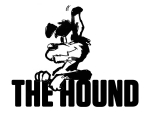The climate emergency is by far the most severe threat faced by grape growers and wine producers around the world, says a group of climate action wineries in an open letter to wine trade executives.
Twenty-two chief executives and senior leaders of International Wineries for Climate Action (IWCA) have called on industry heads to join “rigorous, science-based efforts” to decarbonise the wine sector and work towards net zero emissions by 2050. “Without rapid and decisive emissions reductions, our future will be defined by almost unimaginable levels of disruption – with devastating consequences for the wineproducing regions that we love and the wines we produce for people all around the world,” they say.
Michael Wentwor th, Gene ral Manager for Sustainability and Strategic Projects at Yealands Wine Group in Marlborough, says the letter - sent out as world leaders met at the 2021 Climate Change Conference (COP26) in Scotland – comes at a critical time, and the wine community needs to support wider action to limit global warming while also acting within their own companies.
Yealands has been a member of IWCA since it began with 10 companies in January 2020, and Michael says being a part of the global group is powerful. “You have 22 businesses sitting in a room that have each undergone their own sustainability journey… and through that there is an immense amount of information and information sharing.”
The letter says sustainability has long been treated as a public relations exercise, but needs to be taken to the heart of wine industry operations. “The way we respond to the climate crisis can act as a driver of transformational change and a way of future proofing not only our businesses but our agriculture-based sector as a whole. In short, this must be our decade of action.”
Companies within IWCA conduct an annual endto- end carbon emissions inventory that encompasses direct and indirect emissions sources, verified by an independent ISO-accredited auditor. They also commit to an emissions reductions plan and demonstrate consistent progress, aligned to sciencebased targets with the goal of achieving net zero emissions by 2050, at the latest.
The organisation has developed a greenhouse gas calculator for United States wineries (see sidebox) and has also joined the United Nations’ Race to Zero campaign, a global initiative to rally leadership and support from more than 6,200 nonstate actors committed to halving emissions by 2030 and achieving net zero emissions by 2050, at the very latest, says the open letter. “Collectively, these ‘real economy’ actors join 120 countries, representing nearly 25 percent of global CO2 emissions and over 50 percent of GDP.”
Business leadership today is inseparable from climate leadership, says the letter. “We believe that we each have an obligation to do what we can, within our sphere of influence, to reduce our emissions. We believe that the wine trade can be a beacon of hope and action in the global response to the climate crisis—and serve as a model for other sectors. And we firmly believe that IWCA membership is the most effective way of accelerating an individual winery’s decarbonisation efforts, and by extension, the decarbonisation of the broader wine industry.”
Measure Then Reduce
Yealands Wine Group is sponsoring the development of a greenhouse gas calculator for New Zealand wineries, and another for Australia’s industry, to help simplify emissions calculations for International Wineries for Climate Action (IWCA) members. “The idea is to remove the barriers and provide a robust process,” says Yealands General Manager for Sustainability and Strategic Projects, Michael Wentworth.
The calculator, which was built by consultants, is currently being trialled at Yealands, using data around diesel and electricity use, as well as packaging and freight. “Everything from vineyard right through to having your product sold in market and recycled in market as well,” says Michael. “That helps you set your benchmarks and your targets, in terms of what you are wanting to achieve.”
Yealands will retain the Toitū carbonzero certification it has held since 2008, which requires a full life cycle analysis – from cradle to grave – of all its branded products. That certification ensures the company is on a constant drive to reduce emissions, and last year Yealands’ vineyard teams saved more than 100,000 litres of diesel, “just by changing how we do things in the vineyard”, says Michael, talking of the impact of midrow crops and reduced mowing passes. There are “massive opportunities” in lightweight glass bottles, which have emissions savings in production and freight.
The IWCA calculator will “make it easier for other people to get into that space”, says Michael. “What we are hoping is even small operators with the use of this calculator can develop their inventories and take it from there.”





